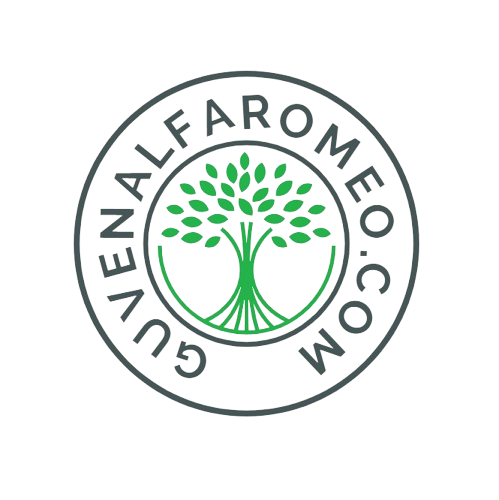
Introduction to Healthy Eating in New Zealand
New Zealand, renowned for its stunning landscapes and diverse ecosystems, also boasts a vibrant food culture centered around healthy eating. The concept of nutrition is increasingly integral to everyday life in this nation, as more individuals adopt health-focused diets and lifestyles. This shift is not simply a fleeting trend but a reflection of a growing awareness about the importance of quality nutrition and its relationship with overall well-being.
The geographical features of New Zealand play a significant role in promoting healthy eating. The climate, rich soils, and abundant natural resources create ideal conditions for cultivating a wide variety of fresh produce. From verdant orchards to flourishing farms, the local agriculture sector offers a cornucopia of fruits, vegetables, and grains. This availability of quality, locally-sourced ingredients significantly enhances the dietary habits of New Zealanders, making it easier for individuals to incorporate wholesome foods into their meals.
Furthermore, the agricultural practices in New Zealand are increasingly leaning towards sustainability and organic methods, reflecting a strong commitment to environmental health alongside personal well-being. Many farmers prioritize ethical farming techniques that focus on reducing environmental impact while maximizing nutritional value in their produce. This aligns with the growing consumer preference for organic and sustainably sourced food options, fostering a culture that values health, freshness, and provenance.
As the movement toward healthy eating continues to gain momentum, various establishments, including farm-to-table cafes, have emerged to meet the demand. These cafes focus on serving dishes that highlight seasonal and local ingredients, ensuring that diners enjoy nutrients-packed meals. Thus, the landscape of healthy eating in New Zealand is not only diverse and rich in flavors but also deeply intertwined with the country’s agricultural heritage and ecological consciousness.
The Rise of Farm-to-Table Cafes
The farm-to-table movement has gained significant traction in New Zealand, reflecting a growing awareness of the importance of sourcing ingredients directly from local farms. This approach not only bolsters the local economy but also promotes sustainability and reduces the carbon footprint associated with transporting food over long distances. Many cafes across the country are now prioritizing fresh, seasonal produce, which is harvested at its peak for maximum flavor and nutritional value.
Farm-to-table establishments emphasize transparency in their supply chains, allowing consumers to understand where their food comes from and how it is produced. This trend encourages nutrient-dense diets, as fresh ingredients are often more beneficial for health than processed alternatives. Additionally, local sourcing helps support small-scale farmers, reinforcing community ties and preserving local agricultural practices. Cafes such as LOGAN BROWN in Wellington and the FRENCH BISTRO in Auckland are exemplary models of this movement, featuring menus that are designed around the availability of seasonal ingredients.
The benefits of eating fresh produce extend beyond personal health. The farm-to-table model contributes positively to the environment by reducing reliance on mass-produced goods that often come with extensive packaging and additional transportation emissions. By opting for locally-sourced ingredients, consumers actively participate in diminishing food waste and promoting wildlife conservation efforts within their regions. Furthermore, the taste difference is often notable, with patrons of farm-to-table cafes reporting richer flavors and more satisfying meals.
Overall, the rise of farm-to-table cafes in New Zealand signals a vital shift towards healthier eating habits, sustainability, and a closer connection to the land and its bounty, making it a worthy consideration for anyone looking to enhance their dietary choices. The continuing innovations in this sector promise to inspire even more cafés and restaurants to adopt similar practices, fostering a healthier community and environment.
Emphasis on Organic and Sustainable Practices
The significance of organic farming and sustainable food practices in New Zealand has gained substantial traction in recent years. Consumers are increasingly prioritizing the origins of their food, fostering a culture that emphasizes health, environmental responsibility, and ethical sourcing. As a result, New Zealand’s agricultural landscape is witnessing a transformation, with more farmers adopting organic methods that eschew synthetic pesticides and fertilizers in favor of natural alternatives.
Organic products not only provide consumers with cleaner food options but also contribute to a healthier ecosystem. The adoption of organic farming practices reduces soil degradation, enhances biodiversity, and promotes water conservation. These methods often lead to higher nutritional content in fruits and vegetables, thereby benefitting consumers who prioritize health within their diets. Increasingly, research supports the notion that organic farming can lead to better outcomes, both in terms of individual health and environmental sustainability.
New Zealand farmers are actively engaging in initiatives aimed at promoting sustainable agriculture. Many have incorporated agroecological approaches that take into account local ecosystems and communities. Collaborative efforts with local councils and environmental groups have further bolstered these initiatives, facilitating knowledge sharing and resource allocation to enhance sustainable practices. Such commitment is evident in the rising number of certified organic farms across the country, which allows consumers to make informed choices when purchasing food products.
Moreover, the trend toward organic and sustainable practices aligns with global shifts in consumer behavior, as more individuals seek transparency in food sources. Awareness campaigns and farmer’s markets have emerged as vital platforms that educate consumers about the benefits of supporting local, sustainable producers. The agricultural sector in New Zealand is transitioning, reflecting a collective commitment to health, sustainability, and ethical practices—making organic and sustainable food choices an integral part of the national identity.
Exploring New Zealand’s Unique Superfoods
New Zealand is renowned for its unique and diverse superfoods, which have gained attention not only for their delicious flavors but also for their impressive health benefits. Among the most celebrated of these is the kiwifruit, a small, fuzzy fruit that boasts a vibrant green interior. This fruit is high in vitamin C, vitamin K, and dietary fiber, making it an excellent addition to a healthy diet. The consumption of kiwifruit has been linked to improved digestive health and enhanced immune function, which can be particularly beneficial in reducing the risk of chronic diseases.
Another iconic superfood originating from New Zealand is Manuka honey. This special type of honey is derived from the nectar of the Manuka tree, which is native to the country. Manuka honey is distinguished by its high levels of methylglyoxal (MGO), a compound known for its antibacterial properties. It is often used as a natural remedy for sore throats, digestive issues, and even skin irritations. As awareness of its health benefits spreads globally, the demand for authentic Manuka honey continues to rise, showcasing its value beyond New Zealand’s shores.
New Zealand’s native herbs also contribute to its reputation as a hub for superfoods. Herbs such as kawakawa and puha have been used by Māori communities for generations due to their medicinal properties. Kawakawa, often referred to as the “pepper tree,” has been shown to possess anti-inflammatory effects and is used in various traditional remedies. Incorporating these herbs into contemporary diets not only honors traditional practices but also enhances culinary experiences. As the world increasingly recognizes the health benefits of these unique superfoods, New Zealand’s products are steadily carving out a significant niche in both local and international markets.
The Role of Maori Culinary Traditions
The Maori people, the indigenous inhabitants of New Zealand, have profoundly influenced the nation’s culinary landscape through their rich heritage, traditional ingredients, and time-honoured cooking methods. Central to Maori cuisine are native ingredients such as kumara (sweet potato), taro, bush foods, and various seafood, all of which reflect the region’s diverse ecosystems and seasonal availability. These traditional foods not only nourish the body but also embody the spirit of the land, fostering a deep connection between people, food, and nature.
Traditional Maori cooking methods, such as hāngī, showcase the importance of communal meals and the art of cooking with earth and fire. This method involves burying food in a pit lined with heated stones, allowing it to steam slowly and evenly. The hāngī process emphasizes patience and the gathering of family and friends, reinforcing the social and cultural aspects of eating in addition to its nutritional benefits. Such communal practices serve to strengthen relationships and create a sense of belonging, which is essential to holistic health and wellness.
Moreover, the Maori perspective on food emphasizes seasonal eating and sustainable gathering practices. Maori culture has long respected the natural rhythms of the environment, urging individuals to forage and harvest food in accordance with the changing seasons. This practice not only supports biodiversity but also promotes a diet rich in variety and nutrients, contributing to overall health. The shared knowledge of seasonal foods and the customs associated with their gathering reinforce community bonds and educate younger generations about the significance of their heritage.
Incorporating Maori culinary traditions into modern New Zealand cuisine fosters a greater appreciation for local foods while respecting ancestral practices. These traditions offer guidance on maintaining a balanced diet that prioritizes health, sustainability, and community. As New Zealand continues to evolve in its culinary journey, the integration of Maori wisdom remains a vital component of its food culture.
Healthy Eating for Different Lifestyles
New Zealand is renowned for its diverse culinary landscape, which reflects a growing commitment to healthy eating habits tailored to various lifestyles. As the nation embraces sustainability and wellness, local cafes and restaurants have increasingly adapted their offerings to cater to the dietary needs of different populations, including vegetarians, vegans, and individuals with specific dietary restrictions such as gluten intolerance or nut allergies. This commitment is reflected in the availability of fresh, locally sourced ingredients that serve as the foundation for nutritious meals.
Vegetarians and vegans are well-supported in New Zealand, with many establishments providing creative dishes that highlight the rich flavors of plant-based foods. Restaurants offer innovative salads, grain bowls, and hearty vegetable-centric entrees that emphasize seasonal produce. Often, these meals are enriched with superfoods such as quinoa, kale, and avocados, which align with contemporary health trends and provide essential nutrients.
For those with dietary restrictions, New Zealand’s culinary scene is increasingly accommodating. Many cafes pride themselves on their ability to modify menu items or create entirely new dishes that meet specific needs without compromising on taste. Gluten-free options have become mainstream, with numerous gluten-free breads, pastries, and pasta available at local eateries. Additionally, meals that exclude common allergens, such as dairy and nuts, are thoughtfully crafted to ensure that everyone can enjoy a culinary experience without concerns about food safety.
By fostering an inclusive dining environment, New Zealand’s food scene exemplifies how healthy eating can be personalized to meet individual preferences and requirements. Establishments are also focusing on transparent ingredient sourcing and nutrition education, empowering consumers to make informed choices about their meals. This culture of adaptability ensures that everyone can benefit from the nutritious options available while enjoying the rich diversity of New Zealand’s food culture.
Community Initiatives and Education
In New Zealand, various community-driven initiatives play a crucial role in promoting healthy eating and nutritional education. These programs target individuals of all ages but often place a particular emphasis on younger generations to ensure the establishment of lifelong healthy eating habits. Schools across the nation are increasingly incorporating nutrition education into their curricula, which helps children understand the significance of a balanced diet and the sources of their food.
One notable initiative is the “Eating Together” program, which encourages families to share meals, fostering not only familial bonds but also the enjoyment of home-cooked, nutritious food. This initiative often includes workshops that focus on meal preparation, emphasizing the importance of using fresh, locally sourced ingredients. Many schools partner with local organizations to facilitate these workshops, aiming to equip both children and parents with the skills needed to prepare healthy meals.
In urban areas, community gardens have emerged as beautiful green spaces for residents. These gardens serve multiple purposes; they provide fresh produce, act as educational platforms, and promote community involvement. Many urban gardens also hold educational sessions where community members, particularly children, can learn about gardening, the benefits of eating seasonal produce, and sustainable agricultural practices. These hands-on experiences instill a sense of responsibility towards health and nutrition, while also connecting individuals to their local food systems.
Moreover, organizations like “Nutrition Foundation New Zealand” actively engage with schools and community groups to disseminate valuable nutritional information. They conduct seminars and provide resources that help communities understand the benefits of healthy eating, reinforcing the idea that nutrition is not just a personal responsibility but a communal effort. Through these initiatives, New Zealand is steadily progressing towards a culture that prioritizes health and well-being, rooted firmly in community engagement and education.
Challenges Faced by Healthy Eating Movements
The movement towards healthy eating in New Zealand encounters a variety of challenges that hinder its growth and accessibility. One significant barrier is the limited accessibility of nutritious food options, particularly in low-income neighborhoods and rural areas. Many communities lack easy access to supermarkets that stock fresh produce and other wholesome foods, which discourages healthy eating habits. Instead, residents may rely on convenience stores or fast food outlets that predominantly offer processed and unhealthy options.
Moreover, the affordability of healthy food is another critical challenge. Fruits, vegetables, whole grains, and lean proteins often come at a higher price compared to fast food alternatives. This price disparity creates a dilemma for individuals and families who may prioritize cost over health. Although there are initiatives aimed at reducing food costs, such as community gardens and local farmers’ markets, the overall economic landscape still poses challenges for lower-income households striving to maintain a balanced diet.
Furthermore, the dominance of fast food culture significantly impacts the healthy eating movement. With the prevalence of advertising and marketing promoting quick and addictive meals, many individuals, particularly children and adolescents, are swayed towards less nutritious options. This societal inclination towards convenience foods cultivates habits that undermine efforts to embrace healthier lifestyles.
In response to these challenges, various organizations and community groups are working to enhance access to healthy foods in New Zealand. Programs focusing on nutrition education, cost-effective cooking demonstrations, and collaboration with local producers are emerging as significant solutions. By addressing the issues of accessibility and affordability, these initiatives aim to empower individuals to make informed food choices and foster a culture of health that transcends socioeconomic barriers.
Conclusion: The Future of Healthy Eating in New Zealand
The landscape of healthy eating in New Zealand has undergone significant transformation, with increased awareness among consumers regarding nutrition, sustainability, and the origins of their food. New Zealanders are progressively gravitating towards healthier choices, thanks in part to a robust local food movement and a burgeoning interest in farm-to-table dining experiences. These trends not only encourage consumers to seek out fresh, locally-sourced ingredients but also foster a connection between them and the producers who supply their food.
Looking ahead, it is imperative that this momentum continues. Local farmers and producers play a pivotal role in ensuring the availability of fresh, nutritious food within communities. Supporting these local enterprises not only bolsters the economy but also enhances food security and minimizes the environmental footprint associated with imported foods. The government’s commitment to sustainable agricultural practices and community-focused initiatives further aids this cause, creating a landscape in which healthy eating can flourish.
Education is another foundational pillar that will shape the future of healthy eating in New Zealand. By integrating comprehensive nutritional education into school curriculums and community programs, the nation can cultivate a populace that is more informed about their dietary choices. This shift in mindset will empower individuals to make healthier decisions, ultimately leading to improved public health outcomes.
In conclusion, the future of healthy eating in New Zealand is bright if supported by sustainable practices, local producer initiatives, and informed consumers. As trends continue to emerge and evolve, this commitment to health, community, and the environment will pave the way toward a more nutritious future for all New Zealanders.



